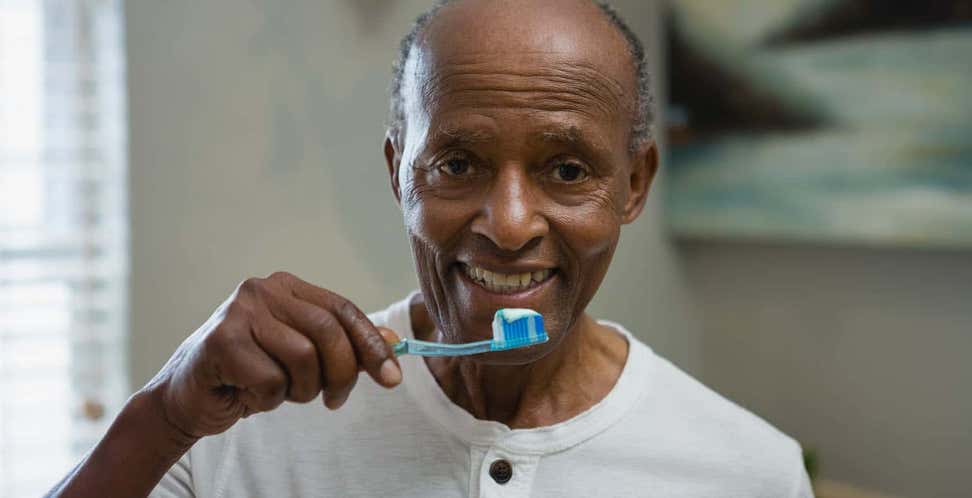Key Takeaways
It’s important for older adults to be aware that dental problems are more than just pain and/or the inability to chew—in fact, these are probably the least worrisome.
The truth is, poor oral hygiene can actually put you at risk for many other serious health conditions. Here’s what you need to know about each.
Read about three lesser known risks of poor oral care.
We learned the basics of caring for our teeth and gums as children, but as many people age, their oral hygiene becomes less of a priority. This often leads to a number of dental problems. Among adults aged 65+:
- 30% have broken and decayed teeth
- Over 40% have puffy, infected gums
- Over 23% have no teeth at all
1. Malnutrition
Teeth that are severely worn, broken down, or missing make it very difficult for older adults to chew foods like meat, vegetables, and nuts. They tend to avoid these key sources of nutrients, and instead turn to foods that are softer and easier to chew and tend to be high in sugar and salt.
Diets lacking protein and important vitamins and minerals can cause malnutrition, which can lead to physical deterioration, falls, a weakened immune system, and chronic conditions like diabetes or heart disease.
2. Loneliness
The damage from oral diseases can trigger feelings of personal embarrassment. Our smile is our first introduction to others, and when it is framed with stained and/or missing teeth, the decline in appearance causes many seniors to lose self-confidence and avoid social interactions.
"My teeth and gums hurt, and my breath smells bad. I do not want my family and friends to see me like this. I am so self-conscious. It's just terrible," confesses an older patient Millie.
Older adults want to feel good, look good, and be confident. When they don’t, they isolate themselves. This can lead to loneliness, which has real physical and mental health implications. It affects mortality, and increases your risk of anxiety, depression, and cognitive decline.
3. Illnesses
The same germs that cause gum pain, bad breath, and tooth decay also have the potential to enter your bloodstream, travel to other organs in your body, and cause diseases. For example, pus from swollen gums can migrate to the heart and lungs and induce respiratory infections like pneumonia. Additionally, conditions like periodontal disease have been shown to have strong links to other chronic diseases, like heart disease and cancer.
Make dental care a priority
If you’ve been neglecting your oral hygiene, it’s time to start taking it seriously—because malnutrition, loneliness, and acute and chronic illnesses are not things to joke about. Learn how to prevent dental problems as you age by following these oral health tips.
If you have dental problems and need help to see a dentist, there are organizations that can help. You can find a list of some of those organizations at the bottom of this page.









